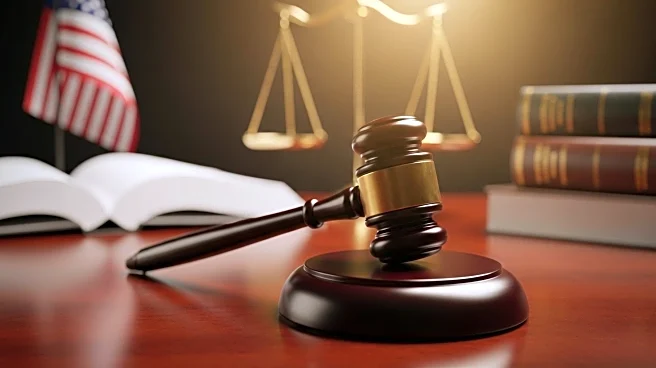What's Happening?
Justice Brett Kavanaugh recently addressed a gathering of judges from the 6th US Circuit Court of Appeals, emphasizing the importance of mutual support within the judiciary. His remarks come at a time of growing tension between the Supreme Court and lower courts, particularly concerning emergency decisions that have overturned rulings related to President Trump's executive actions. Kavanaugh acknowledged the challenges faced by trial judges in making quick decisions in high-profile cases and defended the Supreme Court's often opaque emergency rulings as necessary compromises. His comments were aimed at deescalating tensions, as some judges have expressed frustration over the lack of detailed explanations accompanying these decisions.
Why It's Important?
The relationship between the Supreme Court and lower courts is crucial for maintaining judicial integrity and public trust in the legal system. The Supreme Court's practice of issuing terse emergency orders, especially in cases involving President Trump's administration, has raised concerns about transparency and the undermining of lower court authority. This situation could impact the judiciary's ability to function effectively and maintain its independence. Kavanaugh's call for support among judges highlights the need for cohesion within the judiciary to navigate these challenges and uphold the rule of law.
What's Next?
The ongoing tension between the Supreme Court and lower courts may lead to further discussions on judicial processes and the need for clearer communication in emergency rulings. Stakeholders, including legal experts and policymakers, might push for reforms to ensure greater transparency and accountability in the judiciary. Additionally, the Supreme Court may face pressure to provide more detailed explanations in its decisions to prevent further strain on its relationship with lower courts.









